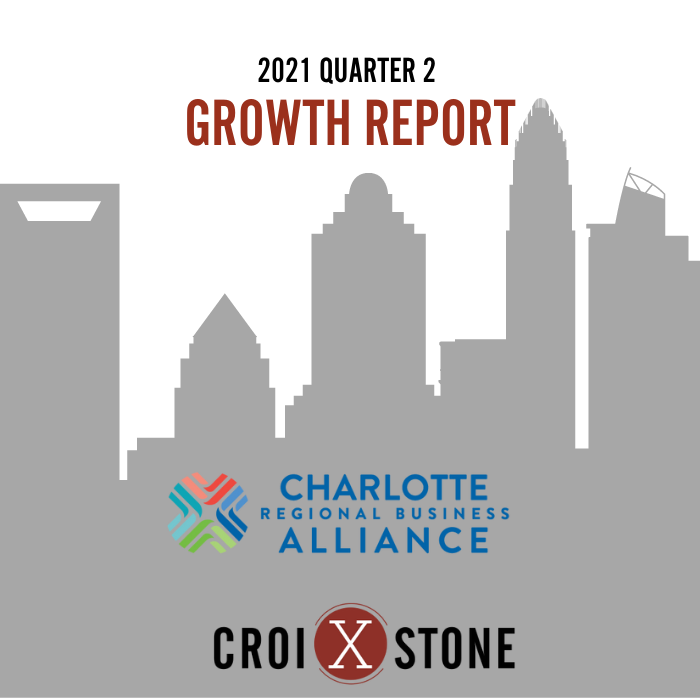Know Charlotte: 2021 Quarter 2 Growth Report
The Charlotte Regional Business Alliance has published its latest Growth Report for 2021 Quarter 2. Although Croixstone Consulting serves clients across the United States, we remain exceptionally invested in the economic growth of the Charlotte Region where our firm is based.
Following are our 5 key takeaways from the latest Growth Report.
- COVID Job Losses: The Charlotte Region has 43,700 fewer jobs than pre-pandemic (-3.1%), outperforming the nation (-4.4%).
- Job Gains: June 2021 showed the most jobs gained since October 2020 (and more than 2x any previous month in 2021).
- Economic Development Projects: 30 economic development projects were announced in Q2, the highest of any quarter since the CLT Alliance created the Growth Report in 2019.
- Capital Investments: These 30 projects represent $1.2B in capital investments (the 3rd highest amount in the history of the Growth Report).
- Labor Market: The Charlotte Region is experiencing the lowest ratio of job seekers to job openings since at least 2006.
Read the 2021 Quarter 2 Growth Report here.


